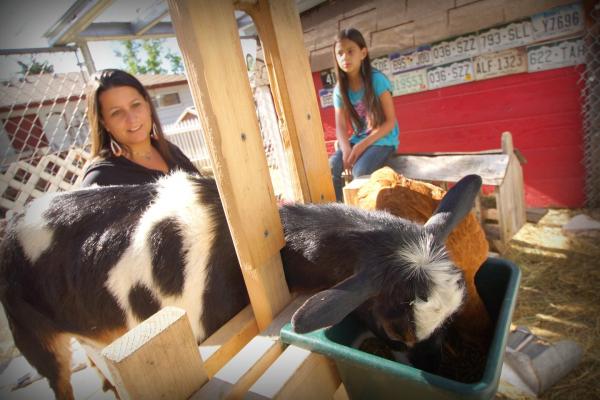Want to Lead a More Sustainable Lifestyle? Here Are Some Ideas

Monycka Snowbird is one among a growing number of Native people and organizations in the United States both on and off tribal land committed to leading clean, sustainable, and culturally competent lives.
RELATED: The Native American Dream: Ojibwe Woman Leads Sustainability Movement Off Reservation
Snowbird’s efforts, in addition to the prevalence of companies specializing in mainstreaming indigenous foods and nonprofits committed to building energy efficient and sustainable housing in tribal communities, highlight the popularity and return of such lifestyles.
RELATED: Video: Ojibwe Woman Leads Off Reservation Sustainability Movement
Examples of food sovereignty in action include Native American Natural Foods, creators of buffalo-based food products like the Tanka Bar, operates out of Kyle, South Dakota, on the Pine Ridge Indian Reservation.
And Sean Sherman (Oglala Lakota), aka the Sioux Chef in Minneapolis, has made headlines specializing in gourmet Native foods, specifically the pre-colonized diets of the Dakota and Ojibwe people.
Sustainable and efficient housing options are achievable with nonprofits like the Bozeman, Montana-based Red Feather Development Group and the Boulder, Colorado-based Native American Sustainable Housing Initiative. Though their work is done on a national scale, organizations like these also partner with tribal agencies and educate tribal members on building techniques and alternative energy solutions.
The organizations mentioned above, as well as Lakota Solar Enterprises, Native Seeds, and Thunder Valley Community Development Corporation lead and promote sustainability efforts benefitting reservation and urban Native families.
Making some or all of the following changes to your habits and lifestyle can benefit you and the environment in the long run. Remember to check your community’s laws and housing regulations prior to implementation.
Reuse the greywater from your bathtub or shower by collecting it and watering your plants, using it for your compost pile, or flushing your toilet. Visit GreyWaterAction.org for more information.
Collect and repurpose rainwater in barrels (if legal).
Install solar panels to power some or all of your utilities.
Hang laundry to dry.
Repurpose or upcycle products you would normally trash. For instance, eggshells can be used to plant herbs or used as compost, and whole sites online are dedicated to DIY wooden pallet projects.
Start an herb garden in your windowsill, on your balcony, or at your workplace.
Look for Meetup and other social media groups to learn about indigenous edibles in your area.
Gorilla garden by planting edibles throughout your neighborhood in the green spaces along curbs and sidewalks (if legal).
Get more information on how to micro farm and its benefits at OvergrowtheSystem.com.
Writer Taté Walker (Mniconjou Lakota) is an enrolled member of the Cheyenne River Sioux Tribe of South Dakota. She is a freelance journalist who lives in Colorado Springs. She can be reached at www.jtatewalker.com or via Twitter @MissusTWalker.
Read more at http://indiancountrytodaymedianetwork.com/2015/09/11/want-lead-more-sustainable-lifestyle-here-are-some-ideas-161685